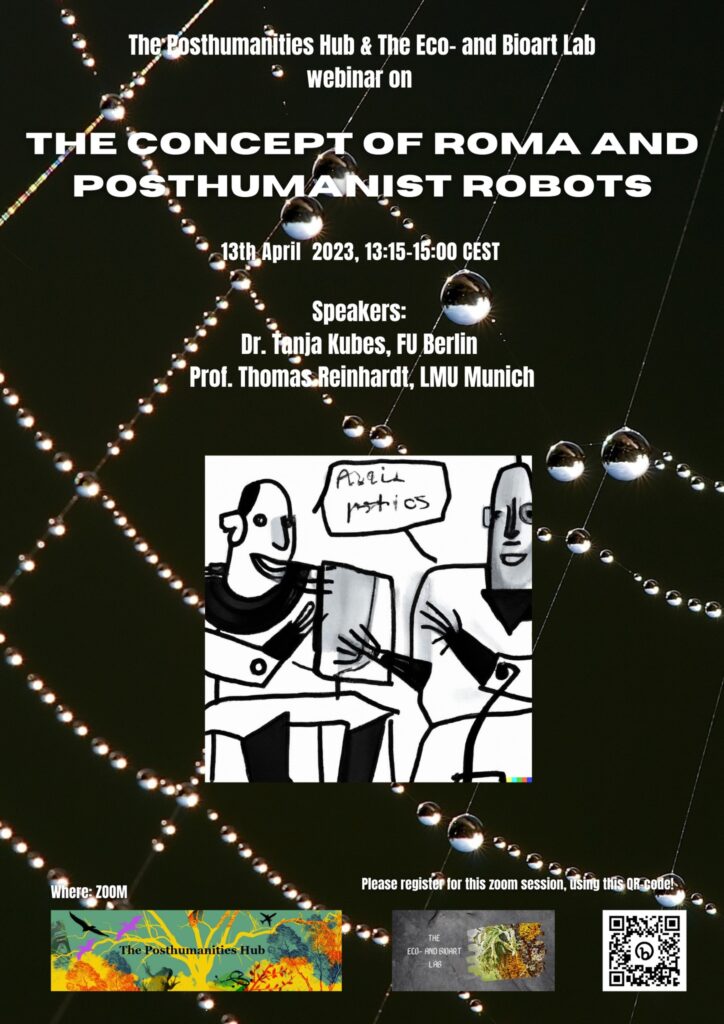Warm welcome to The Posthumanities Hub & The Eco- and Bioart Lab Webinar “The concept of ROMA and posthumanist robots”
with Dr. Tanja Kubes and Prof.Thomas Reinhardt
When: 13th April 2023, 13:15 – 15:00 CEST
Where: on Zoom http://bit.ly/3U4j0xZ

In recent decades, biosciences have re-defined and re-divided “life” (βίος) in numerous ways. However, despite all modifications, the semantic scope of the term has remained largely untouched. The “living” still encompasses the two realms of procaryotes and eukaryotes, the latter further subdivided into several kingdoms (plants, fungi, animals, etc.). Humans may no longer be thought of as the logical telos of evolution, but their special position in the whole of nature is rarely questioned.
Recent developments in the field of artificial intelligence have profoundly challenged the underlying naturalistic ontology. Drawing from neo-animistic and perspectivist approaches in anthropology and STS, our approach of a relational ontology of multi-species assemblages (ROMA) breaks with dualistic conceptions of man and nature and proposes a monistic perspective instead – one that explores the potential of new forms of interconnectedness and rhizomatic entanglements between humans and a world transcending the boundaries between species and material spheres.
Dr. Tanja Kubes is a sociologist at the FU Berlin and researches human-robot relationships. As an expert on socio-technical topics and gender studies she worked as a researcher and lecturer at TU Munich, TU Berlin, TU Graz, University of Vechta, and LMU Munich. In addition to gender studies and science and technology studies (STS), she also focuses on STEM, digitalisation, AI, sociology of the body, autoethnography, ethnology of the senses, anthropology beyond the human, and trans- and posthumanism.
Thomas Reinhardt is professor for Social and Cultural Anthropology at LMU Munich. His research interests cover nature/cultures, new ontologies, semiotics, morphology, and history of science and consciousness.